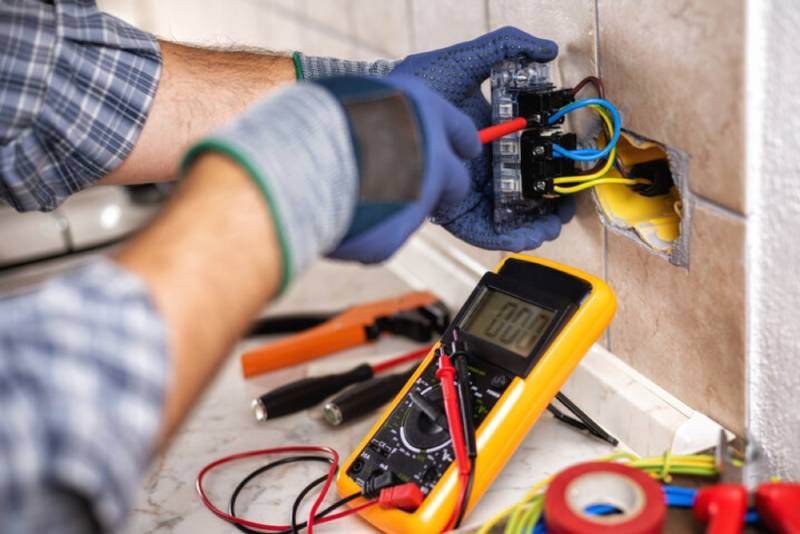
Grounding and Bonding in Home Electrical Systems: Ensuring Safety and Reducing Electrical Hazards
When it comes to home electrical systems, grounding and bonding are two crucial elements that ensure safety and help prevent potential electrical hazards. Although they are often mentioned together, grounding and bonding serve different purposes and are equally important for maintaining a safe and efficient electrical system. Understanding the differences and how each functions can give you peace of mind when it comes to your home's wiring.
What Is Grounding?
Grounding is the process of connecting the electrical system to the earth, creating a safe path for electricity to follow in case of a fault. This ensures that if there is an issue, such as a short circuit or equipment malfunction, the excess electricity is safely directed into the ground, reducing the risk of electrical shock or fire. Grounding also stabilizes the voltage levels in your electrical system, protecting your appliances and devices from electrical surges or spikes.
In a typical home, the grounding system includes a wire that runs from the electrical panel to a metal rod or pipe buried in the ground. This grounded connection provides a fail-safe mechanism, making sure that in the event of an issue, the current has a safe place to dissipate.
What Is Bonding?
Bonding, on the other hand, is the process of connecting all the non-current-carrying metal parts of the electrical system to the grounding system. This includes things like metal water pipes, metal conduit, and other metallic surfaces that are part of or near the electrical system. Bonding ensures that if any of these metal components become energized due to a fault or malfunction, they are all connected to the same ground potential. This minimizes the chance of a dangerous difference in voltage between metal parts, which could cause electrical shock.
Bonding is essential because it ensures that all conductive parts of the system have the same electrical potential, reducing the risk of an electrical arc or shock hazard.
The Importance of Grounding and Bonding
Grounding and bonding work together to protect your home and its occupants from electrical dangers. Without proper grounding, excess electrical energy would have nowhere to go, leading to the risk of electrical shock, fire, or damage to your electrical appliances. Likewise, without bonding, energized metal parts could create dangerous shock hazards throughout your home.
Here are a few reasons why grounding and bonding are critical for preventing electrical hazards:
- Prevention of electrical shock: Proper grounding provides a path for stray electricity to return to the earth, minimizing the risk of shock. Bonding ensures that all exposed metal surfaces are at the same potential, preventing shocks from contact with energized parts.
- Fire prevention: Grounding helps reduce the chance of electrical fires by directing stray current away from your home's wiring system. Bonding reduces the risk of arcing between metal parts, another potential fire hazard.
- Electrical stability: Grounding ensures a stable electrical environment, protecting your electrical devices from voltage spikes, surges, and other fluctuations.
- Compliance with electrical codes: Both grounding and bonding are essential parts of the National Electrical Code (NEC). Ensuring your home’s electrical system is properly grounded and bonded is not just a safety measure but also a legal requirement for code compliance.
When to Call a Professional
While it’s possible to inspect parts of your home’s grounding and bonding system, it’s crucial to involve a professional electrician for any issues or updates to your home’s electrical system. A licensed electrician can verify that your grounding and bonding are correctly installed and functioning, ensuring the safety and longevity of your electrical system.
At Wagner, we are here to help with your home’s grounding and bonding needs, ensuring your electrical system is safe and up to code. Contact us for professional assistance or an inspection to safeguard your home against electrical hazards.




.webp)


